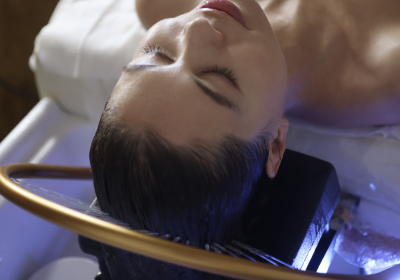While there is currently no cure for Coronavirus, we wanted to share some simple and sensible steps that everyone can take to help support their natural defences against viruses and other illnesses.

HYGIENE
The simplest way to prevent the spread of infection is through basic hygiene, washing your hands with soap and water for at least 30 seconds, and using hand sanitiser after contact with other people. Catching coughs and sneezes into your elbow effectively prevents fluids from spreading, even more so than using a tissue. Disinfecting frequent touch zones like door handles and technology surfaces will help minimise the amount of hand-to-face bacteria transfer. And most importantly, stay at home if you have any cold or flu like symptoms.

HYDRATION
Remember to stay hydrated. The mucosal lining is your first line of defence against viruses and infections, and if we do not drink sufficient water, it can dry out and let pathogens through. It’s best if you take a few sips of water every 30 minutes to make sure your mouth and throat are always moist. Always drink room temperature water.
HERBAL MEDICINE
The most powerful way to protect ourselves from getting infected, in our opinion, is by increasing the body’s internal defences with the help of herbs, diet and supplements.
There are many potent herbs that boost immunity in a natural way. Our top 3 for adults are: Echinacea, Elder and Reishi. Echinacea possesses strong immune-stimulating properties and acts by increasing the activity of our virus-fighting 'warrior' white blood cells. One of the best alternatives to antibiotics and antivirals, Echinacea is useful for all chronic and acute infections. It needs to be taken every two hours (5ml of the tincture) for best results during acute onset. Elder tree has long been called the ‘medicine chest’, as we can use its flowers and berries to treat and prevent flu, herpes, tonsillitis, UTIs and a wide range of other infections. Finally, Reishi, known as the ‘mushroom of immortality’, contains beta-glucans that enhance immunity with a long-term effect, support adrenal function and are rejuvenative for various depleted states. Ask your local herbalist for this preparation, and note that quality of herbs is directly linked to their effectiveness.
For kids, our top three immune boosting herbs are Licorice, Elecampane and Elderberry. Licorice can be taken during or after illness to speed up recovery. It is antiviral, anti-inflammatory and immune modulating.
Additionally, it helps keep the mucosa of the mouth and throat moist and is sweet to taste, making it a treat for the kids. It is also effective for adults, but anyone with high blood pressure should avoid this herb. Elecampane is a great respiratory herb. It’s a warming decongestant and is excellent for catarrh, bronchitis, sore throats, tonsillitis, whooping cough, pneumonia and other chest infections
Other herbs that will enhance resistance and help fight infections include astragalus, mullein, chamomile, Eucalyptus, sage, rosemary, thyme, barberry, olive leaf, turmeric, ginseng, andrographis, golden seal, yarrow, need, guduchi and angelica.
Herbs can be prepared in a variety of different ways, most popular method for adults is a tincture made with a mixture of alcohol and water. Teas and powders are suitable for both kids and adults, while glycerites are particularly favoured by kids for their sweet taste.

SUPPLEMENTATION
Vitamin C is a powerful antioxidant that can help protect against viral infections by stimulating white blood cell activity. It also promotes the production of antibodies, which are necessary for neutralising pathogens. Vitamin C may reduce the effects of allergic reactions, as well as the immunosuppressive effects of stress, through its positive effect on the adrenal glands.
Vitamin D is produced by the body in response to sunlight. During the winter months, supplementation is recommended by the NHS and WHO. Vitamin D is a key nutrient to support our innate and adaptive immune health, while modulating the body’s immune response to pathogens. Scientific evidence shows that it can reduce the duration of infections. With Vitamin D receptors across the whole body from the bones and intestines to the bones and brain, it’s imperative that everyone has optimum levels.
Zinc is a mineral that offers both antioxidant and anti-inflammatory power. It is therefore protective against pathogens with some evidence showing that it can be particularly beneficial for respiratory viruses. Zinc supports immune system, helps heal wounds and supports normal cell growth. A deficiency of zinc can lower the immune response.
Probiotics: 70% of our immune system is located in the intestines, and the microbes in the lower tract help to keep it regulated and fight harmful bacteria. When our gut becomes unbalanced, disturbing the good and bad bacteria levels, probiotics can help restore balance. Probiotics have been shown to secrete protective substances, which may turn on the immune system and prevent pathogens from invading and growing in the body. And taken as a preventative supplement, probiotics may also reduce the number of colds you'll have in a year.
One of the ways to get a powerful dose of vitamins and minerals is via intravenous infusions and intramuscular shots.

COLD & FLU RITUALS
In addition to gargling, try eucalyptus inhalers, and teas with fresh ginger, thyme or rosemary. You need to rotate your natural anti-microbials throughout the day, as our bodies/pathogens can develop resistance in a similar way as they do in case of antibiotics.
Warm your chest with a mustard compress. For centuries mustard compresses were a popular home remedy for flu, coughs, colds, pneumonia and many other ailments. Mustard is a rubefacient, which means it stimulates blood circulation through dilation of the capillaries, which, when applied over the lungs will help open them up and encourage expectoration of mucous that may be trapped. Through this expectoration and the stimulating of coughing, pathogens lingering in the lungs are drawn out with the phlegm, helping to prevent conditions like bacterial pneumonia and bronchitis.
Ingredients:
4 tablespoons flour
2 tablespoons dry mustard
Water (lukewarm)
Directions:
Mix the dry ingredients together then add the water to make a paste. The paste should be smooth and easily spreadable but not too thin so that it runs or is watery. Spread the paste evenly across the top half of a clean cloth (on one side only), then fold up the bottom half of the cloth so that the paste is sandwiched in the middle and apply to chest area. Do not apply paste directly to the skin or it may cause blistering. Cover with a towel or blanket to encourage sweating and leave the compress on for up to 20 minutes. Remove if skin turns deep red and is in danger of blistering. Some reddening is normal as heat & circulation is being drawn to the surface. Remove poultice, wash skin with a warm cloth, dry and apply a layer of body oil over the skin. Next apply to back.
This can be repeated every 4 to 6 hours as needed.
Note that mustard can stain, so choose your towels wisely!

DIET
Make sure you are eating a variety of fresh foods, challenge yourself to ‘eat a rainbow’ each day. The colour of your food can tell you a lot about its nutritional value, and eating a variety of colours is a great way to maintain a diverse microbiome and support the gut which houses 2/3rd of the immune system.
Garlic has powerful anti-bacterial and anti-viral properties. It will also clear and expel mucus and contribute to clearing the lymph, which plays a critical role in fighting infections. Crush garlic and add it into salads and dips. If you are concerned with the smell, purchase botanical vinegars with garlic or garlic pills. Similarly, onion and horseradish can be used for nasal congestion, excess mucus and respiratory tract infections.
Mushrooms contain high amounts of polysaccharides that are known for their ability to boost the immune system, fight inflammation and positively modulate gut flora. Eating cooked mushrooms, such as shiitake, maitake and others, at least twice a week, is an easy and powerful way to maintain and build resilience against pathogens.
Fermented foods have undergone a series of processes that result in the growth of beneficial bacteria that help establish and maintain a healthy microbiome in humans. They have many beneficial properties - improved digestion, supporting our bodies’ friendly bacteria and strengthening the immune system. Fermented foods include sauerkraut, kimchi, umeboshi and other pickles, kefir, live yogurt, natto, kombu and raw apple cider vinegar. If buying from a large supermarket, be sure to check that it hasn’t been pasteurised as this method kills the good bacteria.
Essential Fatty acids. Notably, omega-3 fatty acids can reduce the production of molecules and substances linked to inflammation, such as inflammatory eicosanoids and cytokines. Inflammation is a natural response to infections and damage in your body. However, inflammation sometimes persists for a long time, even without an infection or injury. It is well known that long chain omega-3s support inflammation balance. Linseed/flaxseed, walnut oil and hemp oil are all great sources of omega-3. These oils need to be refrigerated so that they do not turn bitter and rancid.
Add spices to your diet to improve absorption of key nutrients and strengthen gut immunity. Fennel, cumin, basil and most aromatics will stimulate gastric juices. Thyme and rosemary will boost immunity amongst other health benefits. Ginger and chilies will warm you up, improve circulation, whilst also enhancing defence against infections. Finally, turmeric is a super spice that possesses all of the above-mentioned properties. To increase its bioavailability mix it with a pinch of black pepper and fat (like oil or milk), or just make a delicious and nutritious curry!

REST AND SLEEP
The active immune system is energy-dependent, and changes in hormone levels during sleep enable your body to take extra energy from the muscles and utilise it for building up and maintaining a healthy immune system. During sleep, the immune cells come out of circulation, settle in the lymph nodes, and start getting ready for the next day of work. Without enough sleep, the body won’t have the time to work through this full cycle, leaving your immune system depleted.
When we’re stressed, the immune system’s ability to fight off antigens is reduced. That is why we are more susceptible to infections. The stress hormone corticosteroid can suppress the effectiveness of the immune system (e.g. lowers the number of lymphocytes). Mindful practices such as yoga, pranayama and meditation are very effective at easing nerves and modulating stress response.

SALT THERAPY
Salt therapy is believed to aid in relieving respiratory ailments, such as asthma, chronic bronchitis and allergies, as well as skin conditions, including psoriasis, eczema or acne. It is a 100% natural therapy, which triggers anti-inflammatory, anti-microbial and anti-allergic responses in the body. A sterile brine solution is injected into the air to create a salty climate, then once inhaled, these salt particles absorb irritants, including allergens and toxins, from the respiratory system. This process also breaks down mucus, resulting in clearer airways.

ULTRAVIOLET LAMP
Ultraviolet (UVC) light eliminates many bacteria and viruses by disrupting their DNA and rendering them harmless. UV light can restrict the number of germs that get re-circulated through your home, keeping you and your family healthier during flu season. And unlike flu vaccines, UVC light is likely to be effective against all airborne microbes, even newly emerging strains.

MOVING THE LYMPH
Moving in general stimulates the flow of lymph fluid, giving a tremendous boost to the immune system. Our lymphatic system is a network, consisting of lymphatic vessels and nodes that remove waste from the body. Additionally lymph transports immune cells around the body, where they patrol for anything untoward. However, when the lymphatic system is congested as a result of genetic issues, acute stress, sedentary lifestyle or poor digestion, its ability to circulate and fight infection can be adversely affected.
Rebounding
The up-and-down movement from bouncing on a mini trampoline facilitates motion in the lymphatic system. The gravitational pull from the bouncing causes the one-way lymphatic valves to open and close, moving immune cells all around the body.
Massage
While massage techniques may vary, it generally involves the practitioner manipulating the body to physically drain the lymphatic fluid.
Contrast Showers
Lymphatic vessels contract when exposed to cold and dilate in response to heat. If you don’t fancy running into the sea in winter or don’t have access to a sauna, a hot and cold shower at home is a handy way to recreate the lymphatic nourishing properties at home.
Deep Breathing
Just as the heart is the pump for the circulatory system, the diaphragm can assist in pumping the lymphatic system. Deep diaphragmatic breathing is the most important facilitator of lymphatic function. Combined with gentle stretching this can also be a nice way to self-manage stress and relieve tension at the end of the day.
Dry Skin Brushing
The gentle pressure and movement of the bristles may also help stimulate lymph flow to gently detoxify the body. Use long strokes to gently scrub the dry skin, from feed to head, including the front of the body, arms and neck, moving inward towards the heart.
Jenya Di Pierro
Herbal Medicine Practitioner, BA, MA, AMH, ANP
@jenyadipierro

DISCLAIMER
This program is not designed to provide medical services nor is a health and nutrition consultation being provided as a substitute for a consultation, diagnosis, and treatment by a licensed primary health care professional, such as a Medical Doctor. Products or treatments recommended in this program are not intended to diagnose, prescribe, or treat symptom, defect, injury, or disease. The information contained herein is intended to inform, not provide individual medical advice or care.
Tags: Immunity | Author: Jenya Di Pierro, Herbalist & Naturopath













